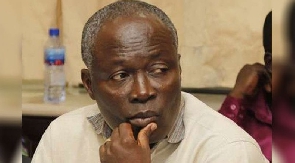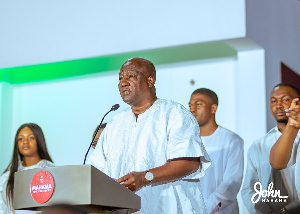A workshop to prepare the grounds for a nationwide implementation of the Complementary Basic Education (CBE) policy within the context of state-civic partnership in target districts is underway in Tamale.
The two-day event which brings together representatives from Basic Education unit of the Ghana Education Service (GES), civil society and development partners, is to disseminate and deepen knowledge and understanding of the School for Life Functional Literacy and IBIS-led wing school models for out-of-school children.
The drafting of a CBC policy was initiated in 2006 by the Basic Education Division of the GES, based on evidence that about 25 per cent of children of school going age in Ghana were still out of school.
The draft policy with strategies and an annual operational plan-2010-2012 is yet to be translated into action.
Speaking at the opening ceremony of the workshop, Mr Suleman Usman Saaka, Director of School for Life, said that the frequent change of Ministers of Education had derailed implementation of the policy.
He appealed to Government to expedite action on the implementation of the policy to improve education in the country.
Mr Saaka said there was also the need to implement the policy to avoid “missing the deadline for achieving Universal Primary Education and Education for All by the year 2015, but there appears to be an extremely slow process of rolling out the CBE policy.”
He said if policy makers were indifferent in working to achieve global and national educational targets, it was not worth subscribing to targets especially when Ghana had signed the Education Fast Track Initiative of the World Bank because of her commitment to education for all.
Mr Saaka said there were between 600,000 and 860,000 out-of-school children in Ghana, and the lack of accurate data on the numbers of that category of children required a multi-stakeholder approach in the conduct of a nationwide survey and harmonization of data on out-of-school children in Ghana.
Mr Mahama Mumuni Bukari, a Director at the Northern Regional Coordinating Council, said the northern part of the country lagged behind other parts in education delivery, despite efforts by civil society to bridge the gap.
He said available records indicated that majority of out-of-school children in the country were in the North.
Mr Bukari said, the CBE policy was a social intervention relevant for the achievement of most of the Millennium Development Goals, eradication of extreme poverty and hunger, achieving universal primary education, promoting gender equality and empowering women and combating HIV/AIDS, malaria and other diseases.**
Click to view details



Regional News of Wednesday, 25 April 2012
Source: GNA
















